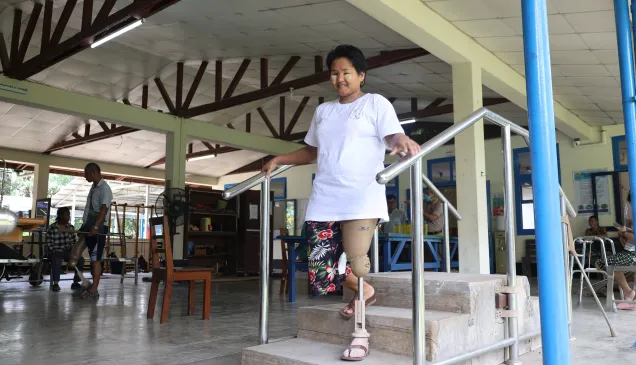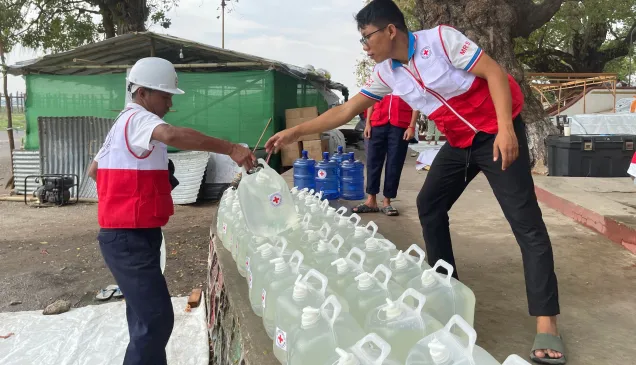Myanmar: Landmine victim looks forward to getting life back on track with her prosthetic leg
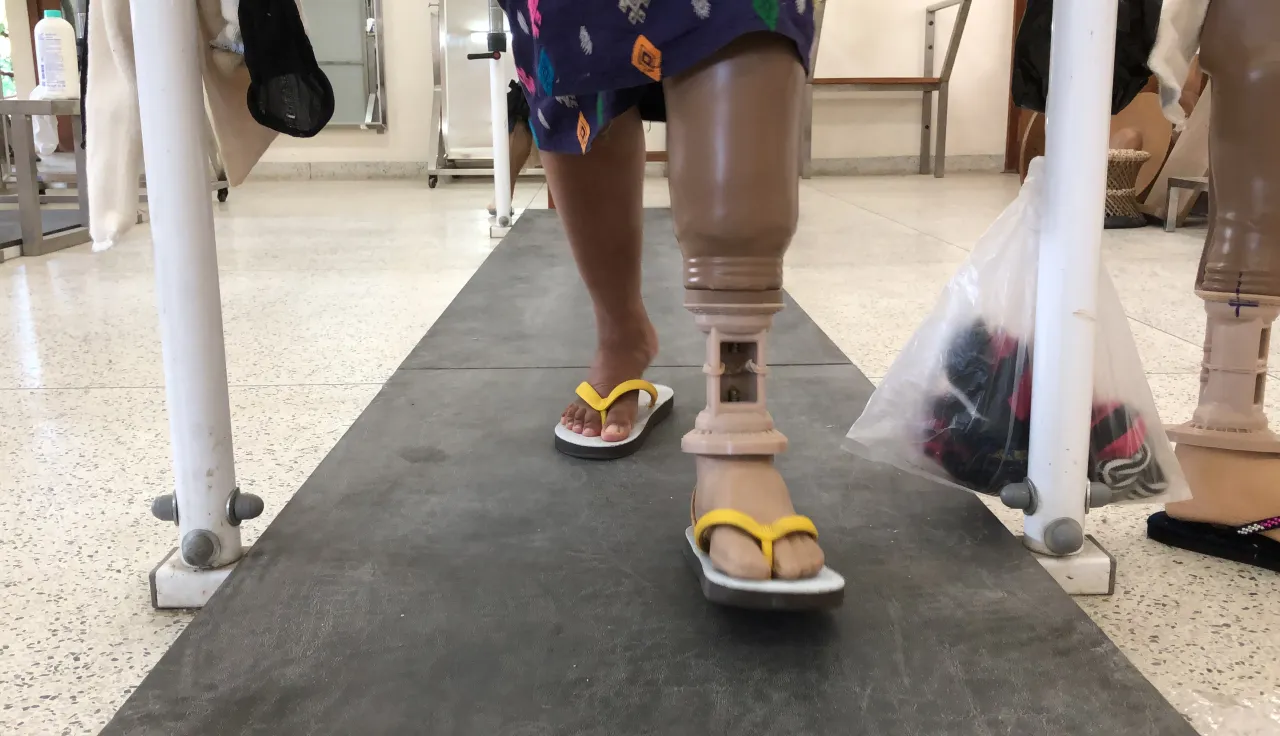
2020 was a challenging year for Daw Lum Naw, who lives in Myanmar's northern Kachin State. Early in the year she lost her husband, becoming the breadwinner for her five children and 87-year-old mother-in-law. Then in July, she was severely injured after stepping on a landmine while on her way to collect vegetables. Her left leg had to be amputated.
"The accident really affected my everyday life. I could not move around as I wanted to. Our house is on a hill and I had to keep asking for my children's help for every little thing, even to just step outside. In November 2020, the International Committee of the Red Cross (ICRC) renovated our house and built a ramp where we used to have steps to help me get around on my own more easily," said Daw Lum Naw.
In November 2021, Daw Lum Naw visited the ICRC-supported Myitkyina Physical Rehabilitation Centre to get a new prosthetic leg and physiotherapy treatment. "With this new leg, I will be able to work and support my family again," she said.
To help restore the lost livelihood of Daw Lum Naw's family, the ICRC also supported her with cash grants to set up her own business. "I bought two piglets to start pig farming. I believe we can make a living with this small business," she said.
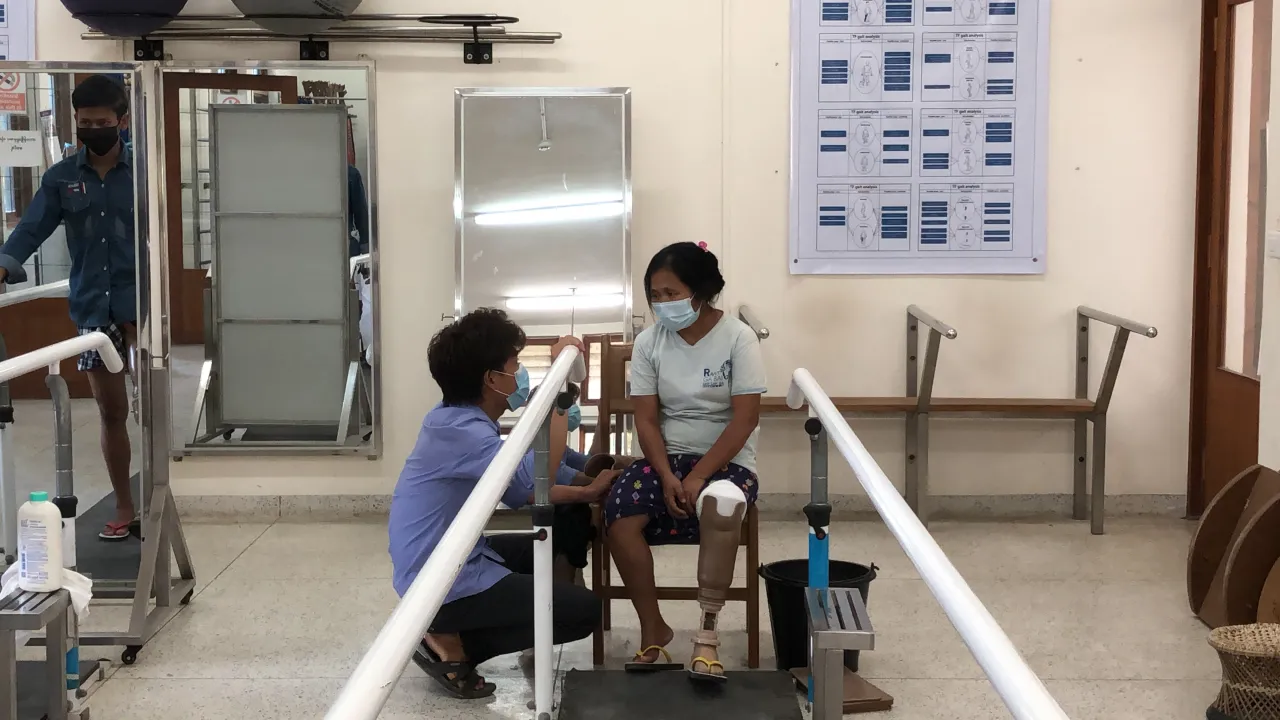
Daw Lum Naw talks to an ICRC prosthetist-orthotist after being fitted with a new prosthetic leg. May Myat Noe Aye/ICRC
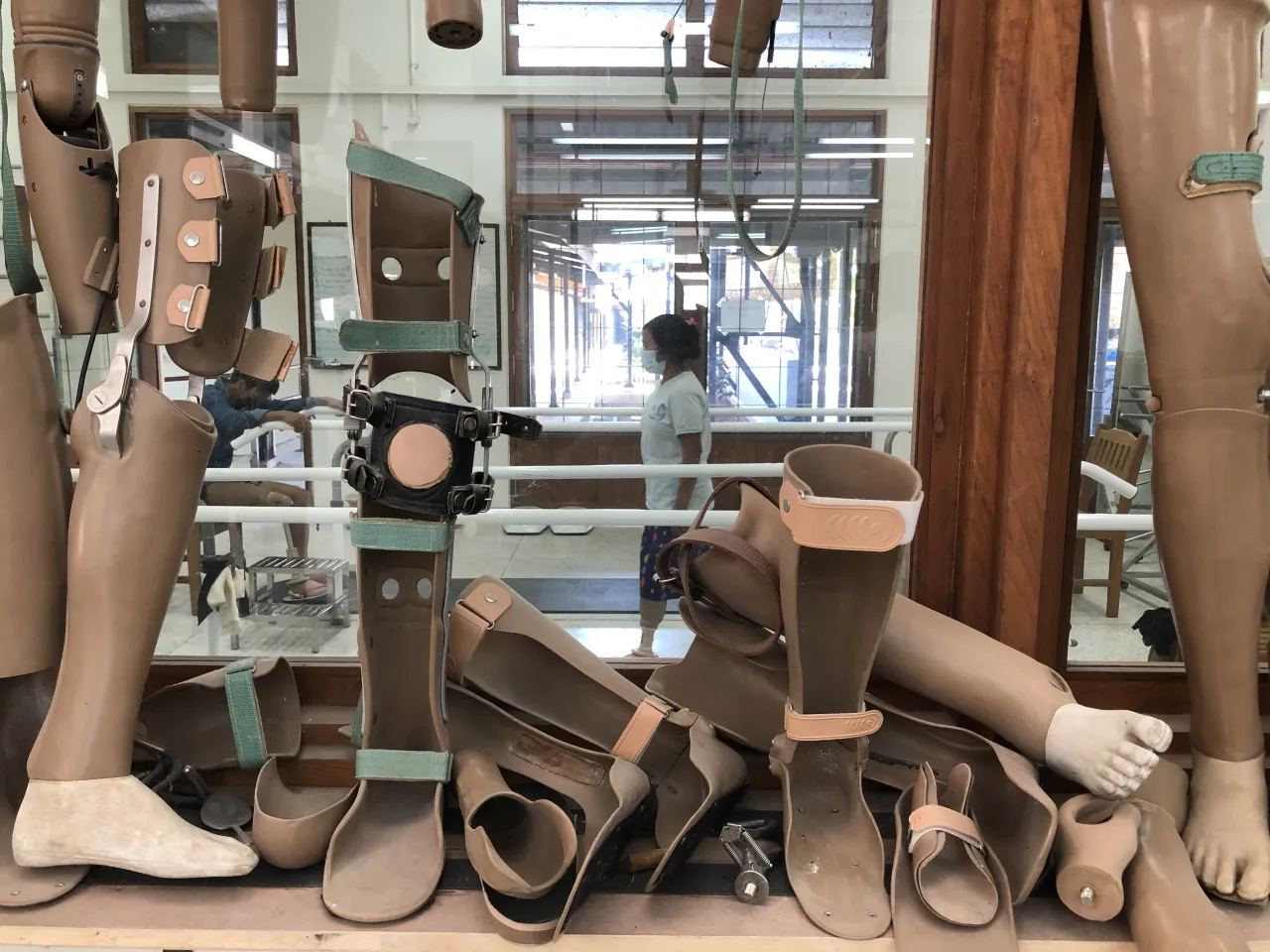
Services at the ICRC-supported Myitkyina Physical Rehabilitation Centre help to ensure that people with physical disabilities live with dignity. May Myat Noe Aye/ICRC
"...I had to keep asking for my children's help for every little thing, even to just step outside.
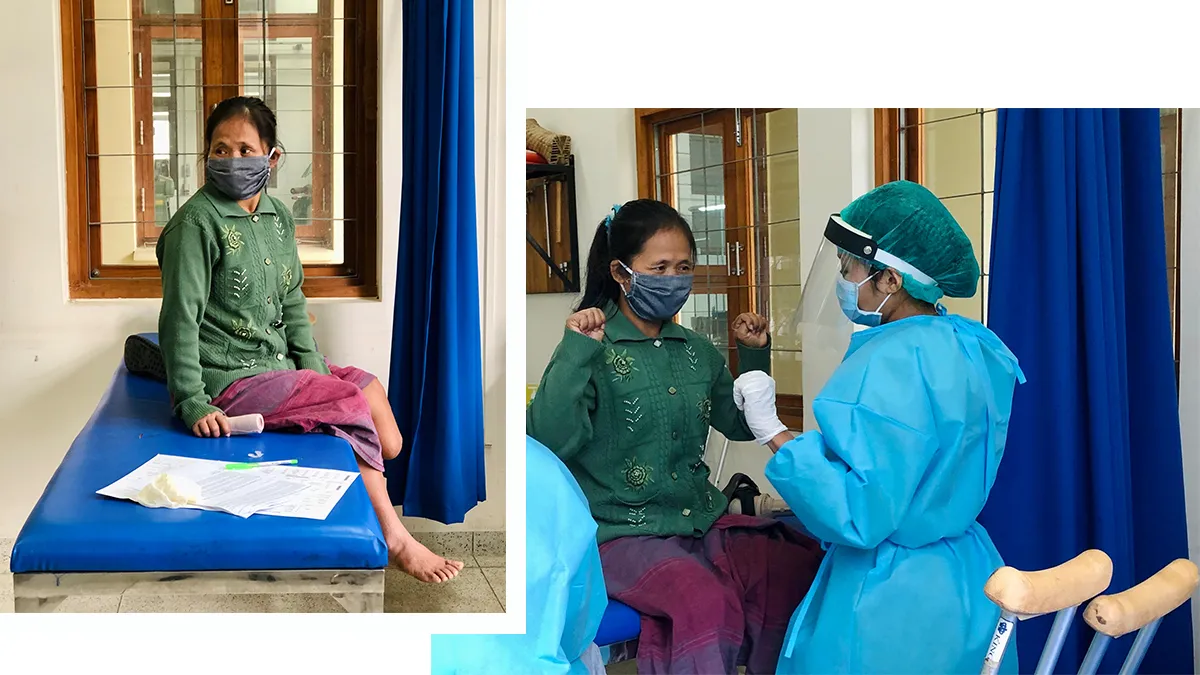
(Left) Daw Lum Naw, a landmine survivor from Kachin State, hopes that she will be able to regain her life and also support her family with the help of her prosthetic leg and physiotherapy. (Right) A physiotherapist shows Daw Lum Naw exercises to be done with her prosthetic leg. May Myat Noe Aye/ICRC
At the rehabilitation centre, Daw Lum Naw boosted the morale of other patients too. "I encouraged the friends there to not lose hope. I told them we will be able to go and do things as we did before once we've received prosthetics and physiotherapy treatment," she said.
Since 2011, communities in Kachin State have been living with the impacts of conflict. Among other things, the ICRC helps those affected by landmines to participate fully in society.
The physical rehabilitation centre provides access to rehabilitation services for all communities, playing an important role in ensuring that people with physical disabilities can live with dignity. We also promote socio-economic inclusion by providing vocational training, promoting sports and supporting service users to set up small businesses.
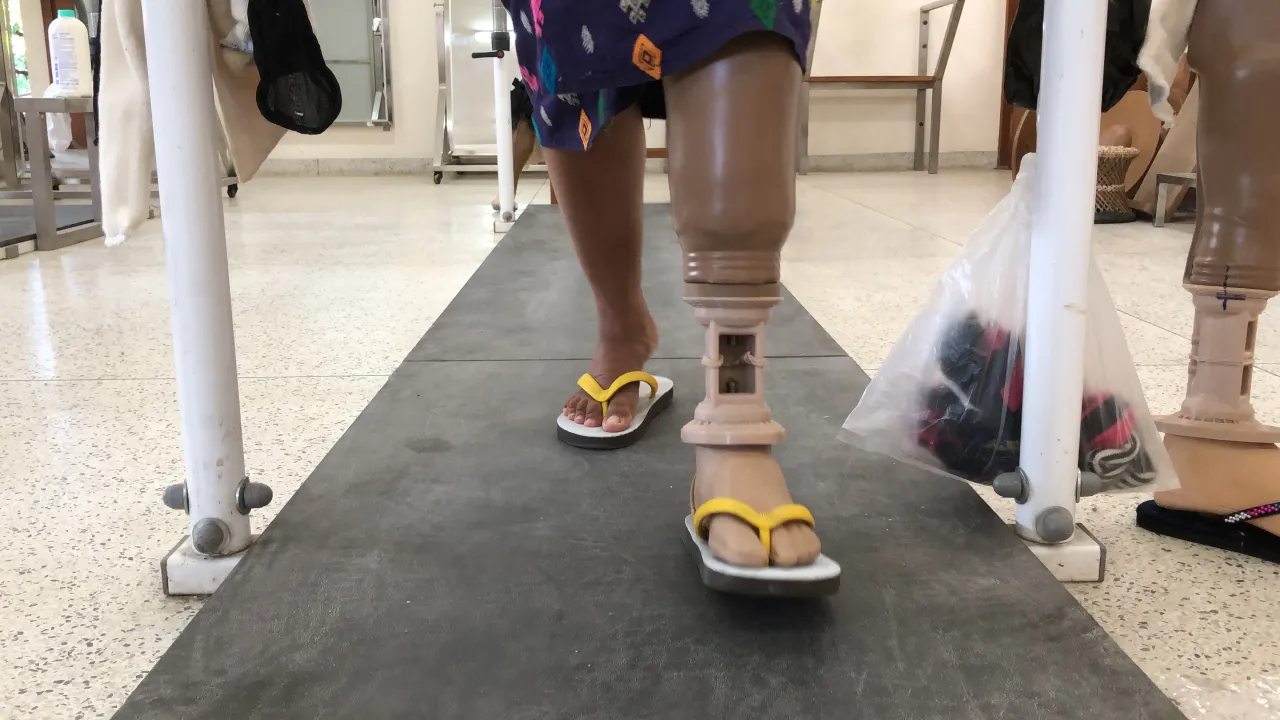
Daw Lum Naw during a physiotherapy session at Myitkyina Physical Rehabilitation Centre. May Myat Noe Aye/ICRC


